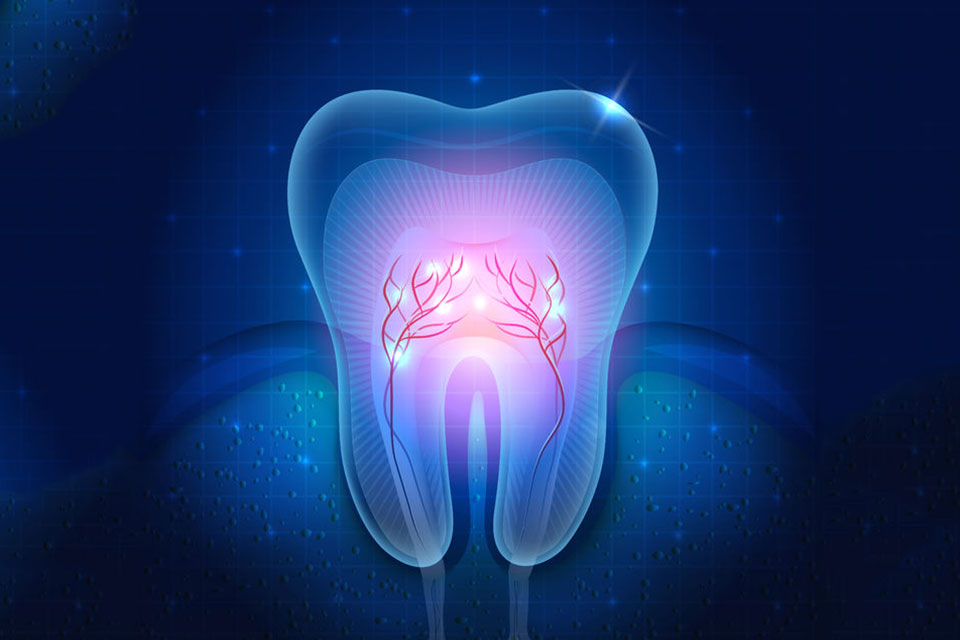Root Canal Therapy

What is root canal treatment?
A root canal treatment is one of the most common dental procedures performed, with over 14 million cases being completed every year. This simple treatment can save your natural tooth and prevent the need for an extraction and subsequent replacement with either an implant or a bridge.
At the center of your tooth is the dental pulp. The pulp consists of a collection of blood vessels and nerves that serve to build and nourish the surrounding tooth. Infection of the dental pulp can be caused by trauma to the tooth, deep decay, cracks and chips, or repeated dental procedures. Symptoms of the infection can include the following: pain in the tooth and/or gums, visible injury or swelling of the tooth or surrounding areas, discoloration of the tooth, or abnormal sensitivity to temperature (cold and/or hot) which was not previously present.
If you experience any of these symptoms, your dentist will most likely recommend non-surgical root canal treatment to eliminate the diseased pulp. Root canal therapy may also be recommended if there is insufficient natural tooth structure available to properly support a planned new dental restoration. After the pulp is removed, the canal(s) are disinfected and shaped to remove all tissues, debris and bacteria. A sterile, inert material is then placed in the canals to seal the tooth and prevent re-infection. Finally, a temporary filling is placed in the access opening. Your regular dentist will then proceed to restore your tooth to function. Root canal treatment usually involves local anesthesia, making it a pain-free experience. It may be completed in one or more visits depending on the treatment required. Success for this type of treatment ranges from 90% to 98%. If your tooth is not amenable to endodontic treatment or if the prognosis is deemed unfavorable, you will be informed at the time of consultation or when a complication becomes evident during or after treatment.
You will be able to drive home after your treatment, and you probably will be comfortable returning to your normal routine immediately.
What happens after treatment
When your root canal therapy has been completed, a record of your treatment will be sent to your restorative dentist. You should contact their office for a permanent restoration as soon as possible after completion at our office. Your restorative dentist will decide on what type of restoration is necessary to protect your tooth. In some instances, the initial restoration will be placed by us, at the request of your dentist. Usually, a crown will be indicated in order to restore the form, function and overall esthetics of your tooth. It is rare for endodontic patients to experience complications after routine endodontic treatment or microsurgery. If a problem does occur, we are available at all times to respond. To prevent further decay, continue to practice good dental hygiene.

